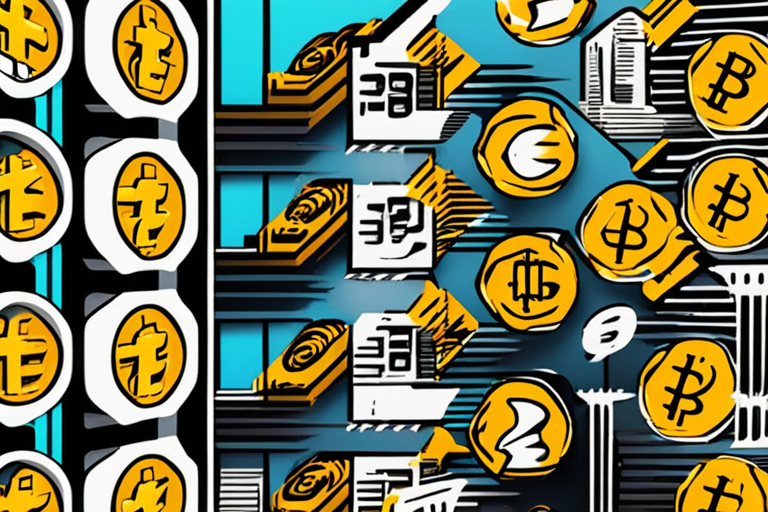Understanding SEC Actions Against Immutable and the Crypto Landscape 🌐
Recently, Immutable, a significant player in the blockchain gaming sector, revealed that it has received a Wells notice from the U.S. Securities and Exchange Commission (SEC). This notice suggests that the SEC is contemplating enforcement action against the firm for alleged violations of securities laws. Immutable’s position is clear: it believes the SEC is misclassifying tokens within the crypto industry as securities, a stance that has significant ramifications for the entire sector.
Details of the Situation and Response from Immutable 🚨
In a statement released on Thursday, Immutable confirmed the receipt of the Wells notice, which accuses the company of engaging in practices that breach securities regulations and making misleading declarations. Immutable criticized the SEC for what it portrayed as a blanket approach to labeling tokens as securities, emphasizing that this trend could pose notable challenges for blockchain-based businesses.
Specifically, the SEC is scrutinizing Immutable’s 2021 listing and sales of the IMX token. Immutable firmly asserted that the IMX token does not fit the legal definition of a security. The company expressed confidence that it can successfully refute the SEC’s claims, maintaining that it has remained compliant with existing regulations.
The Nature of Wells Notices Explained 📄
Within the context of the SEC’s procedures, a Wells notice typically follows in-depth discussions between the agency and a company’s legal representatives. Such conversations are expected to facilitate a more comprehensive analysis of the situation. However, Immutable pointed out that it received the notice soon after its initial meeting with the SEC, which left them surprised, given the brevity of the notice—consisting of fewer than 20 words of substantive reasoning.
Broader Implications for the Crypto Industry 💼
The SEC’s actions have sparked concern amongst stakeholders in the cryptocurrency field. The agency has issued Wells notices to numerous firms, primarily accusing these entities of selling unregistered securities. The position of the SEC is that these tokens meet the stringent criteria of securities, which necessitates registration prior to public sale.
In light of this enforcement trend, leading firms within the cryptocurrency industry have found themselves facing mounting legal expenses. For example, the Blockchain Association disclosed a report revealing that the SEC commenced 104 enforcement actions against crypto organizations in 2023, incurring legal defense costs reaching $426 million.
Immutable highlighted the need for enticing regulatory frameworks that clarify compliance for blockchain businesses. Unfortunately, many startups often find themselves in a situation where they are compelled to allocate substantial resources towards legal defenses simply to continue their operations.
A Growing Need for Regulatory Clarity 🔍
The current environment poses genuine challenges for blockchain companies that are attempting to navigate a landscape marked by uncertainty. Several notable cases have emerged demonstrating the SEC’s aggressive stance toward crypto entities, which further complicates the operational reality for these businesses. The mounting legal fees and the constant threat of litigation create an unnerving atmosphere for innovation and growth within the space.
The industry is calling for more cohesive regulatory guidelines and clearer pathways for compliance. Without these, many firms may struggle to survive against the backdrop of increasing scrutiny and potential enforcement actions.
Hot Take: The Future of Crypto Amid Regulatory Pressures 🤔
This year, as regulatory actions intensify, the cryptocurrency sector faces a pivotal moment. Companies like Immutable are at the forefront of this struggle, illustrating the wider challenges the blockchain ecosystem currently encounters. The ongoing tension between innovation and regulation highlights a critical need for industry stakeholders to engage with regulators in productive dialogue.
The outcome of these interactions could redefine the contours of the blockchain and crypto landscape, paving the way for a more stable and accountable environment. Observers and participants alike will be keenly monitoring how these significant developments unfold in the coming months and what it may mean for the future of blockchain technology and decentralized finance as a whole.





 By
By
 By
By

 By
By
 By
By
 By
By